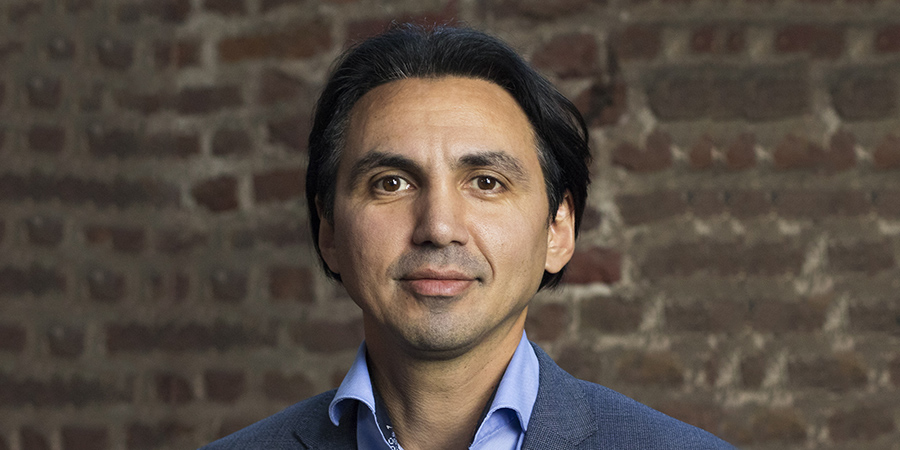umlaut is a global, full-service, cross-industry, end-to-end company that offers advisory and fulfilment services to clients all over the world. Telecom Review spoke to Hakan Ekmen, CEO Telecommunication at umlaut to know more about the company’s benchmarking activities and its plans for the Middle East region.
Can you please tell us a little bit more about umlaut?
umlaut is a very technology-driven and future-oriented company, providing services to numerous sectors and industries, like automotive, energy, aviation, rail and telecommunications. We transfer our expertise and knowledge across the industries.
Our value is defined by the added value we create for our clients, their companies and their products.
In 24 years, umlaut has grown from a startup, made in Germany, to a multinational, globally active company with thousands of highly specialized and experienced experts.
We support our customers worldwide in changing their technological capabilities and organizational culture for the better. In doing so, we always offer them something beyond regular. Following our credo: Add something on top!
In the telecommunications sector we are well known as global leader in mobile and fixed benchmark services. umlaut’s benchmarking results are used by network operators, equipment suppliers, regulators and official authorities worldwide.
What makes umlaut’s mobile benchmarks special?
Thanks to our sophisticated and standardised methodology, the results are comparable across all countries and operators. Our benchmarks provide transparency and are pushing the network quality and performance. Ultimately, that leads to improvements for every customer.
Network operators consider them to be the most relevant assessment of their networks, fairly and transparently assessing digital infrastructures.
Our yearly update brings significant upgrades of our methodology framework. Last year, we have implemented the visibly growing crowd of 5G mobile broadband users and featured more user- and service centric evaluation of broadband coverage, speed and latency.
For 2021 we plan to further upgrade our framework to cope with constantly increasing network capabilities and changes in user behaviour.
How does the pandemic influence mobile networks?
We have analysed the mobile networks as well as the fixed line during the global crisis. In most countries the crisis had no larger impact on the mobile network performance. Working from home has shifted traffic from mobile to fixed networks. Regarding the development of 5G networks, we have seen an initial delay in building up the 5G infrastructure. In the second half of 2020 we have seen an uptake and a fast implementation of 5G infrastructures in many industrial countries. The observed data rates in our 5G measurements all over the world are really impressive, promising a great development of digital capabilities in the upcoming years.
The trend to work from home accelerates the digitisation of the world of work. It can be assumed that working from home will not disappear anymore.
Therefore, we have checked and ranked fixed lines worldwide in a global comparison: Most of the Asian and European countries are operating in the upper third of the score, countries in the Middle East rank in the mid field. Globally we see, internet is still far away from being everywhere.
Are there any highlights with regards to the global 5G development?
Our crowd sourcing methodology allows us to see where 5G is already in use. In the NGMN Forum in November 2020 we have presented the results of our first 5G global benchmark, giving an overview over the development of 5G during 2020. Since Q1/2020 the number of 5G samples were continuously increasing, starting in the Asian region, followed by North America and Europe. Overall, the results for the 5G global benchmark were quite heterogeneous - the top ten countries in our benchmark came from all over the world. From MEA region Saudi Arabia, United Arab of Emirates and Kuwait were among the top ten. On top we have executed drive tests in many cities around the globe, showing quite impressive rates for data speed as well as for 5G availability in metropolitan areas.
What are your future plans in Middle East?
We plan to increase our business also in this region and want to support network operators to provide superior network quality and performance. Benchmarking is only the first step to improve networks. Based on the results and the derived insights, umlaut supports its customers to get the most out of their investments to provide cutting edge services.
Furthermore, our Middle East team will further push digitization in other industries.
In automotive we see a lot of potential for electric vehicles. Besides the cars and their connectivity itself, a stable and convenient charging infrastructure is essential. We are permanently contributing to the development in this sector. Our latest charging infrastructure reports from Europe and the US show a huge improvement potential.
We also operate a very successful remote emergency telehealthcare service in Germany. With our solution, already more than 20.000 emergency cases have been handled. We will find out how this system could also improve the medical care situation in Middle East.
In addition, we are working in the area of smart cities, the airline industries and many other sectors.
So, there is still a lot to come.











